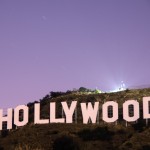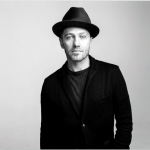The year 2000 saw two Oscar nominated films about men who have everything taken from them except their will to live. Most of us remember Gladiator, which took home Best Picture and has become a hugely popular cultural narrative. Christian audiences in particular (myself included) have embraced the story of Maximus’s integrity and courageous fight to avenge his family and save his country from a demented man.
It’s the other film, however, that resonated more deeply with me. Robert Zemeckis’s Cast Away is a better film than Gladiator for several reasons, but chief among them is this: Whereas Maximus’s victory is in  subjugating his enemies, Chuck Noland’s (Tom Hanks) victory is in accepting his own powerlessness. Cast Away is not just a powerful survival tale, it is a brazenly pro-life, hopeful perspective on redemption in the face of existential inertia. Every Christian should watch and contemplate on this film.
subjugating his enemies, Chuck Noland’s (Tom Hanks) victory is in accepting his own powerlessness. Cast Away is not just a powerful survival tale, it is a brazenly pro-life, hopeful perspective on redemption in the face of existential inertia. Every Christian should watch and contemplate on this film.
Before his plane goes down in the Pacific Ocean (in an awesomely horrifying sequence, brilliantly staged and produced), Chuck Noland is a man on a mission. He operates his FedEx plants with precision and exactness, demanding that his employees resist the “sin of losing track of time.” Everything he does is timed just right, which explains why his fiance’s (Helen Hunt) Christmas gift to him is an antique pocketwatch. This is a man in control and on time, even when he has to unexpectedly depart for an emergency at work on Christmas Eve. “I’ll be right back,” he tells her.
Most of Cast Away takes place on the desert island on which Noland spends the next four years. Initially all of his time is given to trying to gain rescue; he searches the whole island, lacerating his feet in the process, and climbs to the top of the island’s mountain. Realizing he is utterly alone, Noland then seeks to survive. There’s an important transformation that happens inside Noland here. He suddenly stops moving, stops his manic pace from one place to the next. Even his valiant effort to raft out from the island is rebuffed by the ocean waves, leaving him with a bloody wound and without a sense of control. Thus he spends four years on a tropical prison, until one morning when a peculiar item washes in with the tide and gives him a chance to return to life. Yet even in his odyssey towards home, he loses control and suffers loss.
Like Maximus, Chuck Noland is pushed towards the brink of existence. He finds himself stripped of the power and authority he had grown accustomed to. Unlike Maximus, Noland has nothing to wield in his fight to return home. His is existence with no power, except the power of hope. Toward the movie’s end Noland gives a powerful monologue about the moment on the island that he decided he had to keep living.
What strikes me so deeply in this speech is how Noland recounts that the moment he knew he had to go on hoping was the moment in which he realized he had no control. Once the illusion of his self-reliance was shattered, the hope of seeing home overcame his despair. “All my logic told me I’d never see this place again,” Noland says. Noland escapes the island not because he is strong enough or smart enough, but because he has hope. Hope in himself? No. Hope in what, then?
William Broyles Jr., who wrote Cast Away, does not invoke God, though his imagery is blatantly heavenly (you’ll see what I mean once you watch). Noland says that the realization that he had to survive and keep hoping was like “a warm blanket.” It seems as if Noland chose to hope because he had no choice. It was hope or die. He was powerless to create his own destiny, even when he wanted that destiny to be suicide. “I couldn’t even kill myself the way I wanted to, I had power over nothing.” Noland doesn’t learn to hope in himself, because his hope came just at the moment he realizes he is unable to save himself.
What is the worldview of the unbelieving culture if not “Believe in yourself?” What happens when that is impossible? What is there left to hope in when you find yourself unworthy of your own trust? Chuck Noland, a fictional person created by the imagination of a writer, simply hoped for a nameless salvation. Life was all that he had. I said earlier that Cast Away is brazenly pro-life. In a week in which people like Richard Dawkins assign zero value to the millions born with Downs syndrome, Noland’s words breathe a crucial message of hope to those whose logic says their lives are futile.
The good news is that, for the Christian, hope is not an end to itself. It’s not an irrational leap of faith or defiant holding on against reality. Hope exists because God is always there and is always on the move. Hope for living exists because God is in control and sees the very hairs on our head. Hope in the saddest of times exists because God once became a Man and suffered as we do, yet rose from the dead and has now overcome the world.
Every morning and evening of our existence has meaning, purpose and a hope. Like Chuck Noland’s escape from the desert island, many of us are trying to escape a hopeless, isolated existence. Some are close to despair. I wish those could watch Cast Away and take courage that the tide of life is under the watchful care of a Creator God. It will bring good news in its wake. We cannot give up.












